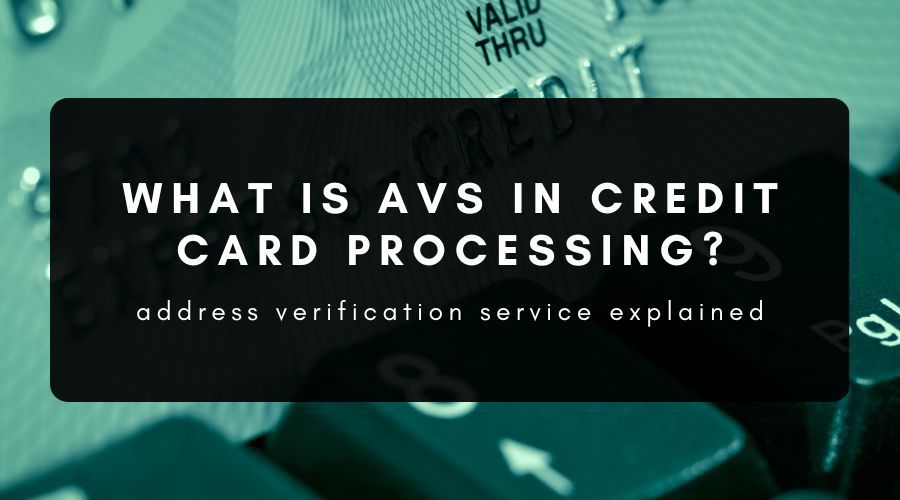
What Is AVS in Credit Card Processing?
Address verification service (AVS) is an essential fraud prevention tool for e-commerce merchants who accept credit or debit card transactions from customers in the United Kingdom, Canada and the United States. All four of the major credit card companies—Visa, MasterCard, Discover and American Express—participate in the address verification system.
For e-commerce merchants, these are the most important things to know about AVS in credit card processing:
- AVS checks the street address and postal code in a customer’s billing address against the address they have on file with their bank.
- After the check is performed, an AVS response code is returned to the merchant, who makes the final decision about whether to not to approve the transaction.
- Along with card verification value (CVV), AVS is the most used common fraud-prevention tool in e-commerce.
- AVS does not work for countries other than the UK, Canada and the US.
- AVS will not stop fraud if the fraudster has the victim’s address.
- AVS authentication should be used in conjunction with other fraud detection mechanisms such as reverse lookups and IP address verification as part of a comprehensive fraud prevention system.
How the Address Verification System Works
When a merchant uses the address verification service, their payment gateway transmits an AVS request every time a debit or credit card transaction takes place.
The process works as follows:
- The payment gateway sends a request to the customer’s credit card company.
- The credit card company passes the request to the customer’s card-issuing bank.
- The issuing bank checks the billing address information supplied against the cardholder’s billing address on file with the bank.
- The issuing bank returns an AVS code that indicates to what extent the supplied and registered addresses match.
- The merchant receives the associated AVS response code and decides whether to decline the transaction, approve the transaction or request additional information from the customer.
- The credit card transaction displays on the customer’s bank balance as ‘pending’ until the merchant makes a decision or for the time limit set by the merchant or bank in relation to pending charges.
This entire process takes only a few seconds and is invisible to the customer. The customer will only see the result of the transaction, for example: ‘approved’, ‘declined’, ‘more information required’, ‘we’re having trouble verifying your card’ or another similar message that you would like to display.
It’s important to understand that the address verification service only matches the street address and postal code and not the name of the city or town. For example, for the address ‘7 Example Street, Example City, 12345, Country’, the address verification system will look to see whether “7 Example Street” and the postal code ‘12345’ match the address on file.
AVS Response Codes
Depending on the customer’s credit card brand, several possible AVS codes may be returned to the merchant, ranging from A to Z. A code that Visa, MasterCard, Discover or American Express supplies may not be offered by the other card companies. However, the most common codes are similar across all four major brands.
Here are a few examples of AVS codes:
- N – neither the ZIP nor address match
- Y – address & ZIP match (American Express), address matches (Discover), address & 5-digit ZIP match (MasterCard), address & 5-digit or 9-digit ZIP match (Visa)
- U – information not available (Visa, Discover and American Express), system unavailable, retry (MasterCard)
- G – address not verified for international transaction (Visa)
In the case of an AVS mismatch, the merchant can either decline the transaction or contact the customer using their email address or phone number to see whether they intended to place an order or perhaps were the victim of credit card fraud.
When AVS Doesn’t Help
While it helps a great deal for certain transactions, AVS isn’t a guaranteed fraud prevention solution for e-commerce. Consider the following situations:
- A British customer’s credit card number was stolen through a data breach and a third party tried to use the card to place an order. In this case, AVS will block the fraudulent transaction because the fraudster doesn’t have the address.
- A Canadian customer’s card was dropped in a store by accident and a bystander picked it up. Even though the card is present and the bystander has the CVV number, AVS will be effective because the bystander doesn’t have their address.
- An American customer’s wallet was stolen while backpacking abroad and the thief used their credit card along with information on their driver’s license to place fraudulent purchases. In this case, AVS will not help because the thief has the victim’s address. However, an IP verification check could help the merchant discover the fraud.
Now, it’s also possible that AVS could block legitimate transactions by mistake. This often happens when a customer has moved to a new address and has not yet notified their bank. It can also happen when a customer is shopping on their phone and can’t remember their postal code.
Keeping these scenarios in mind, merchants should aim to have a backup plan to deal with certain AVS response codes. A quick call or email to the customer should quickly clear up an accidental mismatch, and for customers in countries that don’t support AVS, other verification methods like 3D Secure authentication can be used.
AVS Is Only Part of a Comprehensive Fraud Prevention Strategy
AVS for credit card processing is a useful tool for e-commerce merchants who deal with customers based in the countries that support AVS. However, it’s not a guaranteed fraud prevention solution.
For round-the-clock fraud protection that helps you avoid fraudulent transactions and chargebacks, you need a credit card processor with merchant services that include advanced, adjustable fraud scrub, chargeback mitigation tools and 24/7 customer support.

